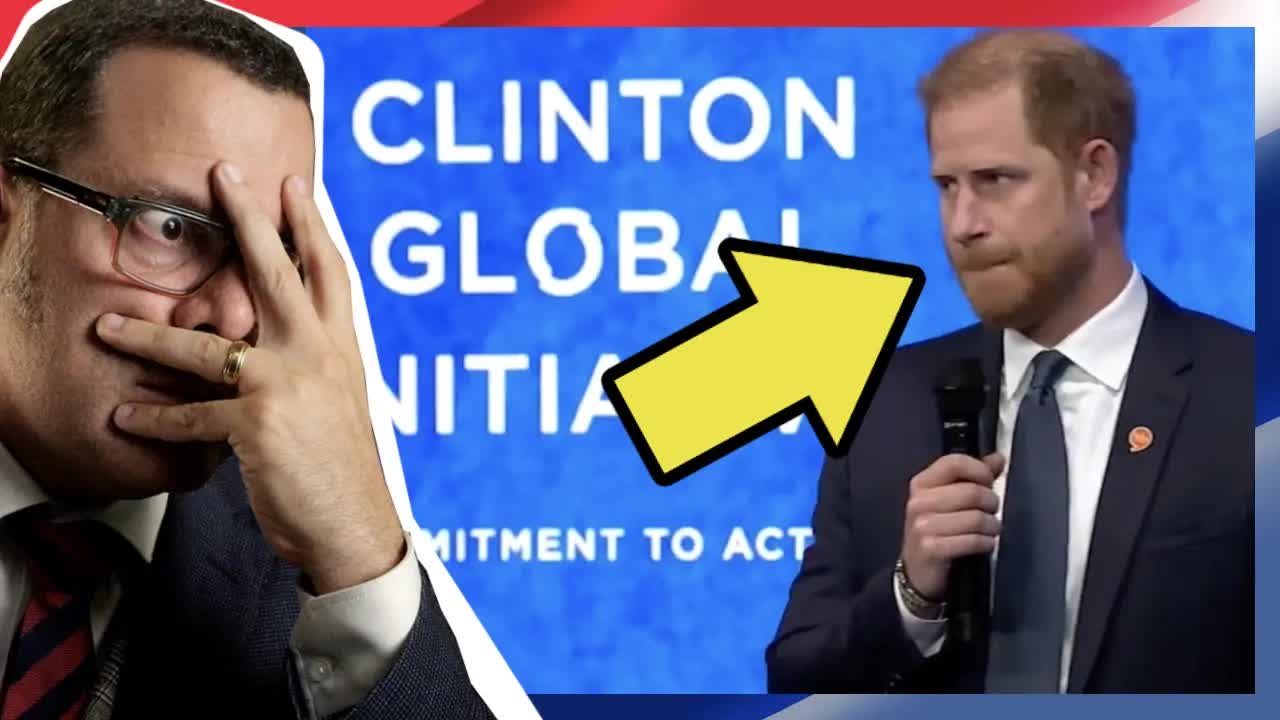In a recent address to the Clinton Foundation, Prince Harry attempted to tackle the pressing issue of social media’s impact on youth.
However, his delivery and content left much to be desired.
Observers noted that despite reading from a teleprompter, his speech lacked the emotional resonance and engagement needed to connect with the audience.
Harry began with a historical overview of space exploration, referencing milestones like the launch of Sputnik in 1957 and Neil Armstrong’s moon landing in 1969.
While these achievements are significant, they felt disconnected from his intended message about the dangers of social media.
The opening failed to capture the audience’s attention or set the stage for the serious topic he aimed to address.
Instead of starting with an anecdote that could evoke empathy, Harry opted for a broad narrative.
This approach made his speech sound more like a Wikipedia entry than a heartfelt call to action.
A personal story about a family affected by social media could have established an emotional connection, making the audience more receptive to his message.
As he shifted to discussing the threats posed by the online world, Harry’s tone remained overly academic.
He spoke of the need to create a digital environment that prioritizes well-being and connection, but his points often veered into corporate jargon about profitability.
This detour diluted the urgency of the message, as many parents might find it easier to connect with the idea of protecting their children rather than discussing corporate profits.
Harry rightly pointed out that young people face significant mental health challenges linked to their online experiences.
Reports of anxiety and depression among teens have surged, and the impact of constant scrolling and rapid video consumption can’t be ignored.
He was spot on when highlighting how these platforms can exacerbate feelings of isolation and distress, especially among developing minds.
Yet, his argument seemed to lose focus when he jumped to the topic of misinformation.
This abrupt transition left listeners wondering how it connected to the earlier points about mental health and social media addiction.
The lack of coherence in his message made it difficult for the audience to follow his train of thought.
Moreover, while Harry emphasized the importance of community support for parents navigating these challenges, he could have been more direct in addressing parental responsibility.
Just as one wouldn’t blame a tool for accidents caused by negligence, parents must take an active role in monitoring their children’s online activities.
The speech continued to meander, touching on various issues without fully exploring any one of them.
Harry’s mention of the need for accountability from social media companies felt hollow, given that he didn’t provide concrete solutions or actions that could be taken.
It’s crucial to hold these companies responsible, but the focus should also be on empowering parents and youth to navigate these spaces safely.
As he wrapped up, Harry called for a global commitment to child safety online, emphasizing the need for collaboration across different nations and cultures.
While this is an admirable goal, it remains unclear how he intends to foster such cooperation.
The speech lacked a clear roadmap for achieving these objectives, leaving the audience wanting more clarity.
In a world where digital literacy and emotional intelligence are paramount, Harry’s message fell short of inspiring actionable change.
He recognized the importance of equipping youth with the skills needed to navigate online challenges, yet his delivery felt robotic and disengaged.
Despite the good intentions behind his words, the overall execution did not resonate with the urgency of the topic.
As discussions around social media continue to evolve, it’s essential for advocates like Harry to present their ideas in a way that captivates and motivates their audience.
Ultimately, while Harry’s speech addressed important issues, it highlighted the necessity for more impactful communication strategies.
Engaging storytelling and a clearer focus could significantly enhance the effectiveness of future addresses on such critical topics.

